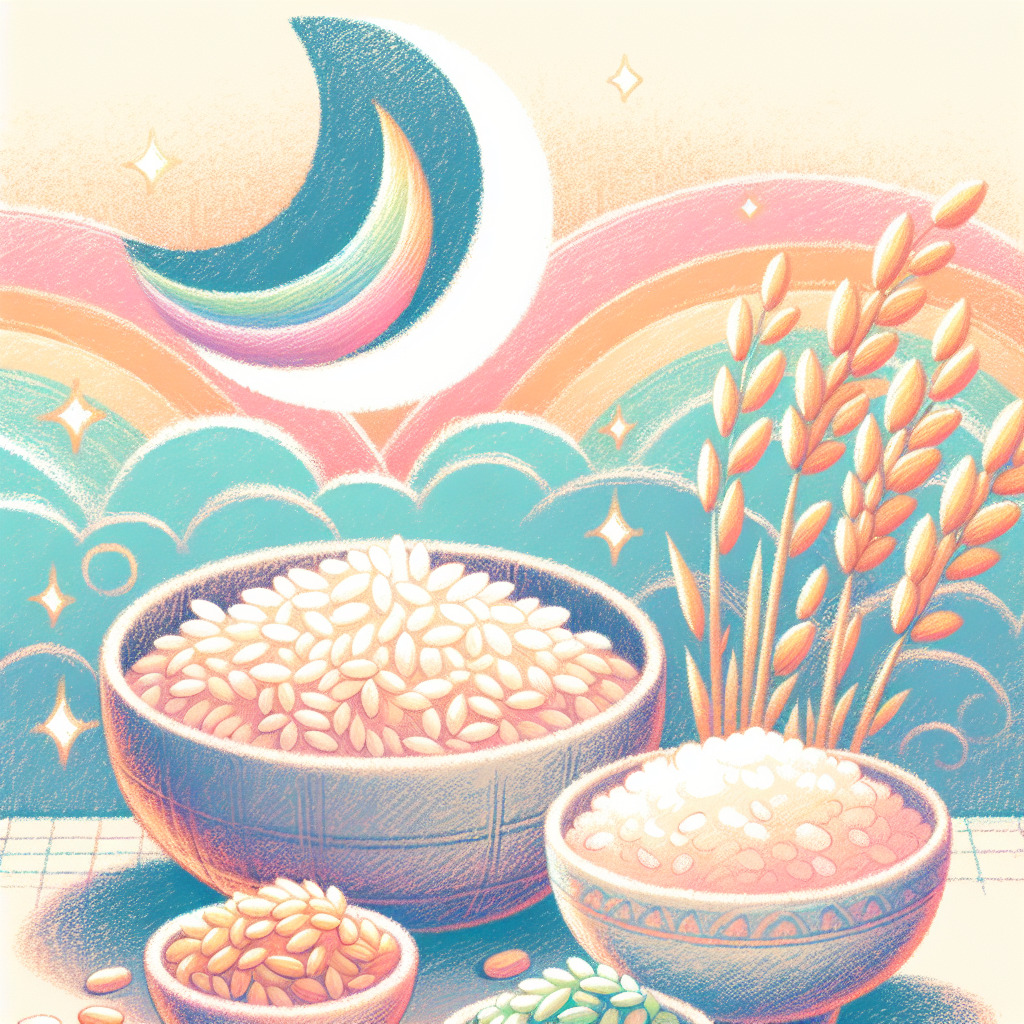Rice as a Cultural Cornerstone: Understanding Its Role in Japanese Cuisine and Spirituality
The Significance of Rice in Japan
Rice is more than just a staple food in Japanese culture; it holds a symbolic significance that is deeply embedded in the lives and traditions of the people. For centuries, the Japanese have revered rice as their primary source of sustenance, embedding various emotions and ideals into this essential ingredient. Rice transcends mere nourishment; it is a crucial component that interweaves with life, society, and spirituality. The practice of rice farming has been a seasonal activity that forms the backbone of farmers’ lives and sustains Japanese society as a whole.
The climate in Japan is perfectly suitable for rice cultivation, making it a time-honored tradition since ancient times. Notably, rice harvests symbolize abundance, and numerous festivals celebrating the bountiful harvest are held across the country. These festivities play a vital role in strengthening community bonds and preserving traditions. The blessings brought forth by rice cultivation are shared among local residents, deeply intertwined with Japan’s spiritual culture.
The Deep Connection Between Rice and Japanese Cuisine
In Japanese cuisine, rice occupies a central position. Go-han (cooked rice) is an essential part of the dining table, complementing a variety of main and side dishes to create a nutritionally balanced meal. Typically, the type of rice used is short-grain, with renowned varieties such as Koshihikari offering sweetness and stickiness that pairs well with all kinds of dishes. This rice presents a pure and clear flavor that brings profound satisfaction to those who consume it.
Moreover, rice plays a pivotal role in traditional Japanese dishes like sushi and onigiri (rice balls). In these culinary delights, the technique and balance of various ingredients highlight the natural flavor of the rice. Additionally, *sake, a fermented rice beverage, represents an essential aspect of Japanese drinking culture, with diverse brewing techniques that yield a wide array of regional brands.
Rice as a Spiritual Symbol in Japan
Beyond its culinary applications, rice serves as a spiritual symbol in Japanese society. It is regarded as sacred, and the practice of rice farming is closely connected with the gods of fertility. Farmers view rice as a link to the divine, with the harvest representing prosperity itself. During harvest festivals and religious rituals, rice is offered to deities, and local communities express their gratitude for a fruitful yield.
Rice also features prominently in significant ceremonies, such as weddings and coming-of-age celebrations. It is not only served as a dish but is also imbued with special meaning in sacred contexts. This rich cultural backdrop profoundly influences the spirituality and values of the Japanese people, where rice embodies memories, emotions, and the expression of hopes and prayers.
Connectivity Between Japan’s Present and Future through Rice
In modern times, rice continues to be an integral element of daily life for the Japanese. However, with globalization, food cultures are evolving. As international cuisines gain popularity, there is a renewed appreciation for the importance of rice culture within Japan. In this shifting landscape, contemplating the future of agriculture and food is vital for preserving Japanese identity.
Particularly, discussions surrounding the farm-to-table concept and the promotion of domestic rice consumption have emerged. Initiatives to communicate regional charms through rice are gaining momentum, with collaborations involving local rice farmers aimed at revitalizing communities. Rice has emerged as a catalyst for forging new connections among people, and it is hoped that the values represented by Japanese cuisine and rice culture will persist into the future.
Conclusion
In summary, rice serves as a cultural foundation in Japan, acting as a vital dietary element and a spiritual symbol. To truly understand the lives and values of the Japanese people, it is essential to recognize the role of rice in connecting producers, consumers, and cultural bearers. Reevaluating the profound significance and importance of rice is believed to contribute to enriching the landscape of Japan and its culture in the years to come.
As we celebrate the heritage of rice, fostering a deeper appreciation for this cornerstone of Japanese identity can pave the way for a vibrant cultural future.


